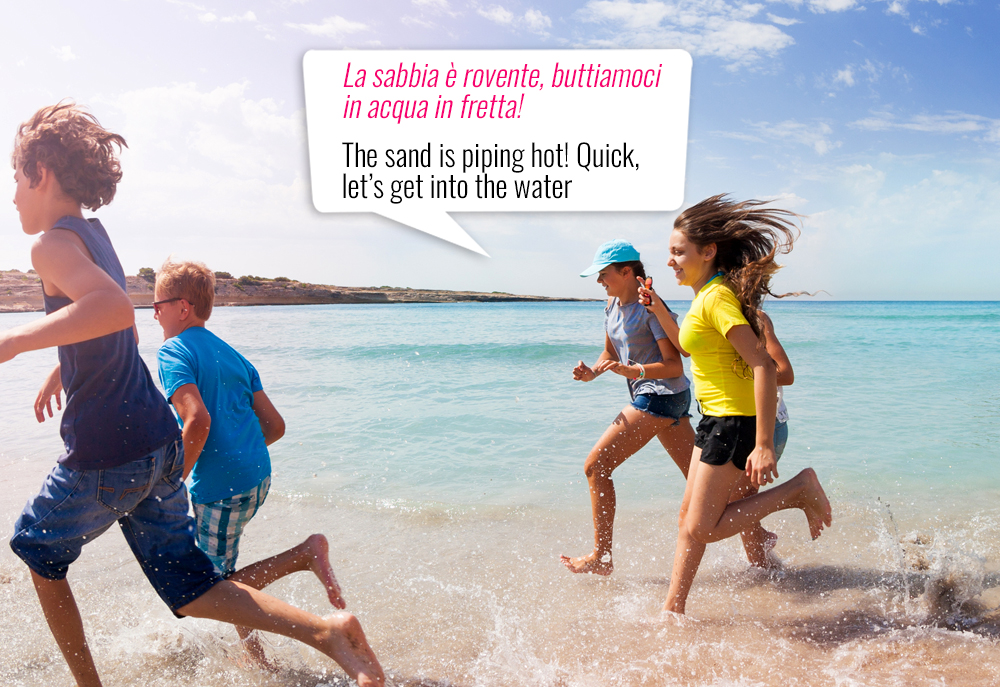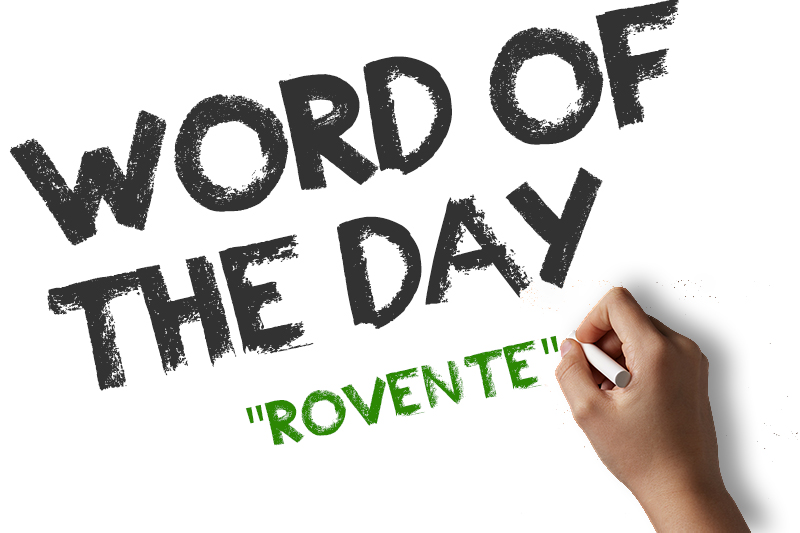This week’s word, rovente (roh-vehn-tai), comes from the Latin rubenten, or “reddish.” However, we don’t quite use it for red stuff, but rather for what’s very, very hot. Non toccare la padella, è rovente! (“Don’t touch that pan, it’s very hot!”) you may hear a grandma shout to her grandchildren while she cooks. Indeed, rovente is often used to indicate the very high temperature of an object or substance.
Il ferro rovente (“hot iron”) is what blacksmiths work with and coffee is often rovente, too (we’d say “piping hot” in English, in this occasion).

Rovente is also used metaphorically to talk about a heated discussion, like in ho avuto una discussione rovente sulla politica internazionale con il mio professore (“I had a heated discussion about international politics with my teacher”), or a particularly lively romantic encounter (apparentemente, hanno trascorso una notte rovente in un hotel 5 stelle; “apparently, they spent a hot night together in a 5 star hotel”).
But these days, the meaning of rovente we’ve been using the most is related to the weather. Yes, because rovente also means “scorching” or “boiling:” if you want to say today it’s a scorching day, you’d say oggi è una giornata rovente, andthere is no denying that August this year has been a boiling hot month in Italy (un mese rovente in Italia).
And what’s the best way to tackle una giornata sotto un sole rovente (“a day spent under a scorching hot sun”)? Well, perhaps a gelato, or even better a big slice of anguria, watermelon, the ultimate treat when it’s hot in Italy, the real taste and scent of summers back here.
- A me il caffé piace rovente!
- I like piping hot coffee!
- La sabbia è rovente, buttiamoci in acqua in fretta!
- The sand is piping hot! Quick, let’s get into the water!
- Un piatto di minestra rovente è la cena migliore quando fuori fa freddo
- A bowl of boiling hot soup is the best dinner when it’s cold out





























